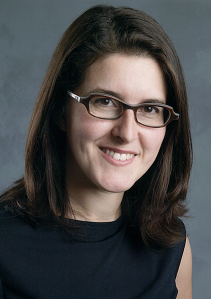It's International Women's Day

Historically, in Canada, the human immunodeficiency virus (HIV) has been predominantly considered a man’s disease as it has mostly affected men who have had sex with men. As a result, healthcare services for people living with HIV are frequently more adapted to men’s needs. Today, however, women represent an increasing proportion of the populations living with HIV. To improve care and services for these women, researchers of the Canadian HIV Women’s Sexual & Reproductive Health Cohort Study (CHIWOS) are working to answer the following questions: What are the needs of women living with HIV in Canada, what are the currently available services, how do women access these services, and how can we improve them?
“What makes this research project unique is the fact that it incorporates community-based research principles: women living with HIV have been involved in the project from the very beginning, and have helped with nearly every aspect,” says Dr. Alexandra de Pokomandy, Québec principal investigator for CHIWOS, and a researcher clinician at the Research Institute of the McGill University Health Centre (MUHC) and at the Chronic Viral Illness Service of the MUHC.
“The perspective of women from the community complements that of the researchers,” she says. Indeed, these women, called Peer Research Associates (PRAs), were recruited and trained to conduct the survey interviews with over 1,000 participants from British Columbia, Ontario and Quebec.
“They have experience living with HIV and accessing services,” explains Dr. de Pokomandy. “Not only do they give the researchers feedback on the methodology of the study and identify issues that need to be addressed in health care but they are also better able to form bonds of trust with the research participants they survey. The value of their feedback is immeasurable.”

From left to right: Angela Kaida, Ph.D., Principal Investigator, Simon Fraser University, BC, Mona Loutfy MD, FRCPC, MPH, Nominated Principal Investigator, Women's College Research Institute, ON, Alexandra de Pokomandy MDCM MSc., Principal Investigator, McGill University Health Centre, QC and Robert Hogg, Ph.D., Principal Investigator, Simon Fraser University and BC Centre for Excellence in HIV/AIDS, BC
Health care delivery can vary greatly from region to region, and there are many services that may be lacking for women living with HIV. Sometimes, these deficiencies are related to medical practice. For example, pap tests for cervical cancer screening may often be forgotten among the management of other medical problems, or too often postponed access to this test is difficult. In other cases, the limitations to the delivery of health care may be societal rather than procedural: often, women spend more time caring for children and family members than men, and these activities may affect women’s availability to follow up with their personal, medical or psychological appointments.
Dr. de Pokomandy points out “there is also the issue of women’s sexuality and reproductive health after HIV diagnosis. We need to verify if women have the opportunity or feel the need to discuss these topics with their health care provider.”
The current National Survey Phase, launched in October 2013, takes into account the subject’s economic status, aspects of their sexual lives, and their frequency of access to medical care and community service organizations. Recruitment is ongoing, and a follow-up survey will be completed 18 months later.
“Assembling a comprehensive and current picture of the experiences of women living with HIV in Canada will contribute to better adaptation of current services and will ultimately help improve these women’s global health and wellbeing,” concludes Dr. de Pokomandy.
More about CHIWOS: http://www.chiwos.ca/home
To watch the CHIWOS video: http://www.chiwos.ca/?s=video